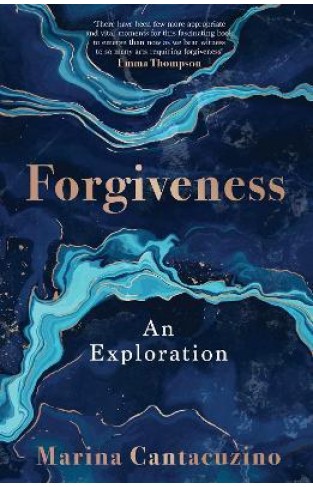Forgiveness is a workhorse of a word. We forgive a forgotten birthday, a debt owed, a playground scuffle. But we're also expected to use the same word and sentiment to absolve violence, criminality, trauma. Forgiveness is complicated. Some grant it to those who have done them or their loved ones great harm; some try to forgive and fail; some believe it to be damaging, to be avoided at all costs. Some forgive to set themselves free of pain, others to help perpetrators to move on and live a more meaningful life. Some have had to learn to forgive themselves. In 2004, Marina Cantacuzino founded The Forgiveness Project - an organisation dedicated to exploring forgiveness through the collection of stories. Their work, not least through their prison outreach programme, has had an enormous impact on the lives of many people and on how forgiveness is perceived and discussed. In Forgiveness, Cantacuzino continues that work, seeking to unpick, investigate and debate the notion of forgiveness, with personal stories at its core. Cantacuzino talks to a survivor of Auschwitz; to a woman whose son was murdered and to the man who killed him; to a former combatant in The Troubles. She listens to someone who accidentally killed a friend; to a parent who lost their child in a terrorist attack; to a former white nationalist; to tales of family rifts and reconciliation. All have compelling stories and thoughts on forgiveness. Along the way we learn about forgiveness and how, if we choose, we can bring it into our everyday lives. Forgiveness is messy, gripping and an essential part of our continual quest for meaning.












